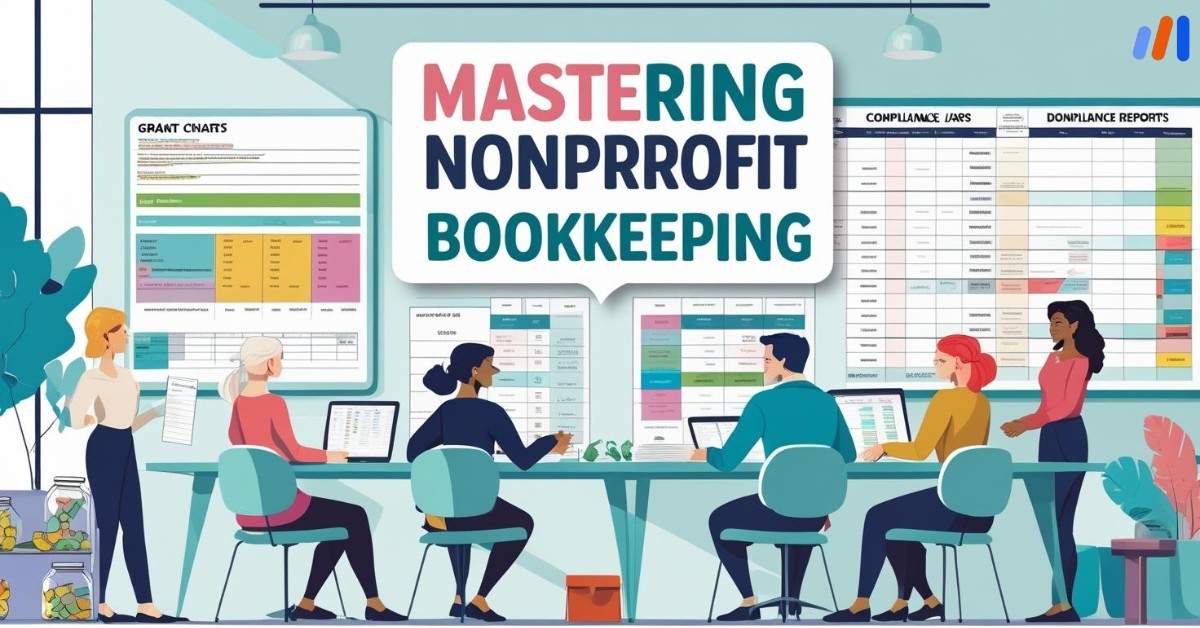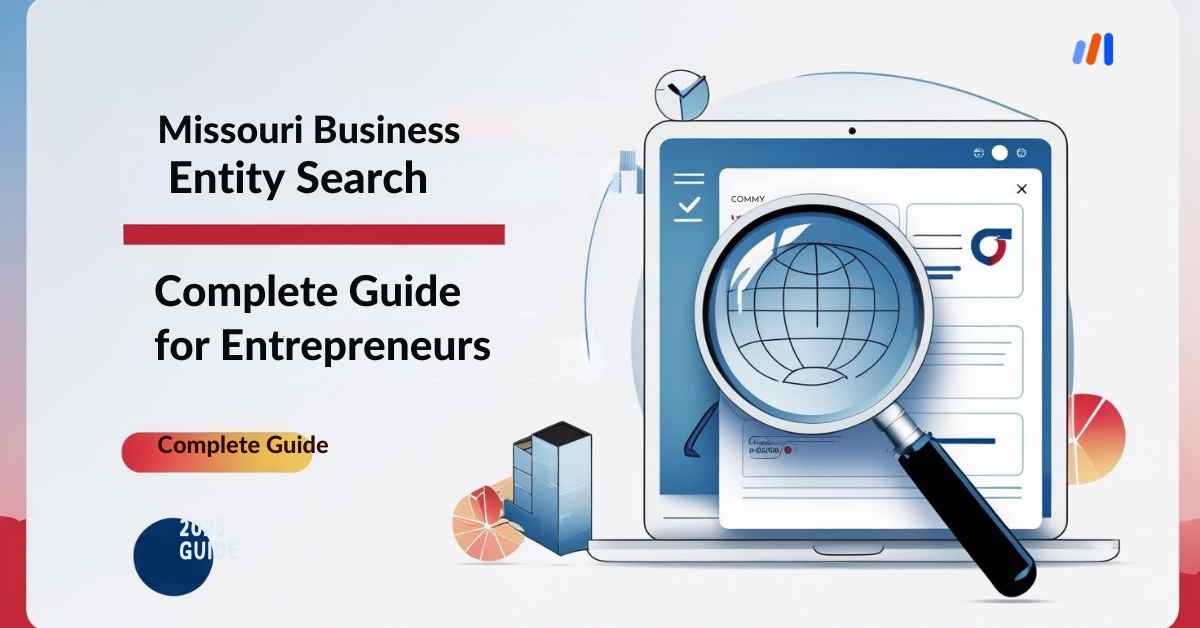Why Nonprofit Bookkeeping Is Important
Due to the mission-driven nature of organizations, nonprofit bookkeeping ensures financial transparency and accountability. Nonprofits differ from traditional businesses because they focus on maximizing impact instead of profit margins.
However, nonprofits still face strict financial guidelines to keep their tax-exempt status and earn the trust of their donors. Effective bookkeeping is crucial for nonprofits; otherwise, even the most impact-driven organizations may face financial mismanagement, compliance problems, and loss of credibility.
Whether you’re starting a grassroots nonprofit or running a longstanding nonprofit foundation, grasping the significance of nonprofit bookkeeping will help ease your organizational struggles. In this guide, we cover the basics while providing actionable steps and mission-driven tactics, tailored to your needs.
What Is Nonprofit Bookkeeping?
Nonprofit bookkeeping is the untangling, tracing, and keeping records of the financial activities of a nonprofit organization. This process guarantees accurate records of all incoming funds, donations, grants, and expenses.
Unlike profit-seeking organizations, nonprofits do not focus on financial profits. Rather, they track the expenditures tied to programs and projects. This often requires fund accounting, a bookkeeping method that organizes funds into separate categories based on restrictions enforced by donors, grants, or internal policies.
The essential objectives of bookkeeping for nonprofits include:
- Ensuring donors’ funds are being used properly
- Ensuring funds are being used properly
- Ensuring accurate bookkeeping for audits, board meetings, and government compliance.
Differences Between Nonprofit Bookkeeping and Nonprofit Accounting
Despite being used interchangeably, bookkeeping and accounting have different meanings for a nonprofit organization.
Bookkeeping includes:
- Daily transactions of a business
- Recording all revenues and expenses
- Reconciling the bank statement
Unlike bookkeeping, accounting encompasses strategic or tactical areas. It includes:
- Preparing financial records like the Statement of Financial Position
- Budgeting and forecasting
- Ensuring compliance with GAAP or other standards
- Filing of Form 990 for IRS compliance
In simple terms, bookkeeping is the foundation, while accounting is the framework built on top.
Getting Started: Steps to Perform Bookkeeping for a Non-profit Organization
Starting with nonprofit bookkeeping might be easier if you have a template to follow.
Step 1: A chart of accounts needs to be set up.
Donations, grants, program expenses, administrative costs, and fundraising are common accounts.
Step 2: Select a bookkeeping method
Unlike for-profit organizations, nonprofits do not have many options and usually choose between:
- Cash Basis: Income is recorded when it is received, and expenses when it is paid.
- Accrual Basis: Tracks income and expenses chronologically, leading to a more accurate depiction of business operations.
Step 3: Implement Fund Accounting
Segment income and expenses into funds:
- Restricted
- Temporarily Restricted
- Unrestricted
Step 4: Monthly Bank Account Reconciliation
Regular monthly reconciliation helps prevent inaccurate reporting and fraud.
Step 5: Maintain Accurate Documentation
Invoices, receipts, and letters of grant must be kept for audit and compliance processes.
What Does a Non-Profit Bookkeeper Do? A Non-Profit Bookkeeper’s Role and Responsibilities
A Non-Profit Bookkeeper is integral for keeping finances healthy for the organization. Key responsibilities comprise:
- Managing the finances of the organization and the income book
- Managing expenses for the issuing organization
- Compilation of financial documents for the board
- Managing and reconciling accounts
- Expediting audits
Depending on the organization’s size, a bookkeeper may work alone or alongside an accountant and finance team.
Essential Bookkeeping Systems and Methods for Nonprofits
What bookkeeping methods do nonprofits use? For smaller nonprofits, the cash basis method is easier to manage. But for larger nonprofits, the accrual method is generally more beneficial for its accuracy and compliance with accounting frameworks and standards.
Depending on the adopted and preferred bookkeeping method, nonprofits may apply:
Fund Accounting
Monitors expenditure and ensures compliance with the intent of the donor.
Class Tracking
Many software solutions allow you to assign classes to transactions, aiding in organizing different programs or initiatives.
Donor Management Integration
Integrating donor management systems with bookkeeping software helps nonprofits track donations and create donor-specific reports.
Best Practices in Nonprofit Bookkeeping for Long-Term Success
To promote accountability and transparency, consider implementing these nonprofit bookkeeping best practices:
- Bank accounts should be reconciled every month to identify potential errors or instances of fraud.
- The assignment of roles to staff should be structured in a way that minimizes the likelihood of funds being misappropriated.
- Nonprofit organizations should proactively create or maintain financial records that are necessary for audits or reviews by the board.
- Nonprofit organizations should be able to track certain funds that have been restricted by the donor to ensure that the terms set by the donor are complied with.
- Nonprofit organizations should set up systems to automatically record transactions that occur frequently to minimize the possibility of human error.
- Nonprofit organizations should provide stakeholders and board members with financial reports on a regular basis.
- Nonprofit organizations should have precise records regarding the grants that they hold so that they can be used for reporting and renewal.
Nonprofit vs. For-Profit Bookkeeping: What Makes It Different?
The objective of a for-profit business is to make money and provide dividends to the shareholders. The objective of a nonprofit is to accomplish a mission. For that reason, nonprofit bookkeeping has several specific differences:
- Standard for-profit loss statements are replaced with fund accounting
- Sales are replaced with donations, grants, and memberships as the revenue sources
- The primary stakeholders of the organization are the donors, grantors, and the IRS; thus, these are the reporting guidelines that are set
- Nonprofit organizations use Form 990 to comply with the IRS, as opposed to using the regular business tax returns that companies would use
- Precision tracking is especially required for restricted and unrestricted funds
Effective use of nonprofit resources requires understanding these distinctions.
Nonprofit Bookkeeping Compliance and Internal Controls
Nonprofit organizations bear a greater burden of accountability compared to other organizations. Internal controls help keep organizations compliant and lower the chances of fraud and waste.
Important Internal Controls Are:
- A division of responsibilities
- Double signatory approval for large payments
- Finance and board management oversight
- Independent audit engagements
Nonprofit Compliance Essentials:
- Form 990 requires an annual submission and is essential for tax-exempt status retention
- GAAP or FASB Standards – Compliance provisions of accounting recognized increase the standing of the entity
- Grant specific reports – all report requirements of the donors or agencies above must be fulfilled
In the absence of controls, the organization is at risk of incurring penalties and losing its charitable status.
Selecting Bookkeeping Software for Nonprofit Organizations
The bookkeeping software for nonprofits has to manage various processes, such as fund accounting, donor tracking, and compliance reporting. Here are some top-rated tools:
Donor tracking and custom chart of accounts with grant tracking on QuickBooks for Nonprofits
- Aplos: Designed specifically for nonprofits and churches
- Free Wave: Good for small organizations with reduced functionality requirements
- Xero: Cloud-based and offers strong solution integrations
- EasyBooks by EasyFiling – EasyBooks simplifies fund accounting, tracks restricted and unrestricted funds, generates board-ready reports, and ensures full IRS compliance with tools tailored for Form 990. Ideal for organizations that want an all-in-one solution backed by expert support.
What to Look For:
- Integration with the donor management system
- Automated bank feeds
- Custom reporting
- Friendly user dashboard
- Work with a Nonprofit Bookkeeping Service You Can Trust
We understand the intricacies involved with nonprofit bookkeeping at EasyFiling. With us, you get:
- Affordable flat-rate with no surprise fees
- Expertise with 501(c)(3) compliance and Form 990 with the IRS
- Custom reporting for dashboards designed for users such as the boards, stakeholders, and other relevant users
EasyFiling ensures the bookkeeping for new organizations launching their nonprofit is audit-ready, compliant, and transparent while scaling nonprofit organizations.
Build Nonprofit Bookkeeping Trust through Financial Reporting
The data entry for nonprofits is the foundation of accountability, compliance, and trust. Nonprofits have a financial future shaped through tools, partners, and systems.
As a result of following the recommended strategies and best practices in this guide, your organization will be able to better manage its finances, mitigate regulatory concerns, and most importantly, focus on creating impact.
Frequently Asked Questions About Nonprofit Bookkeeping
Nonprofit Bookkeeping: Which Method Is Used?
Most nonprofits use the accrual method because it is more precise and compliant with GAAP. Smaller nonprofits might choose to use the cash method due to its simpler nature.
Are Nonprofits Exempt from Filing Tax Returns?
Though nonprofits are exempt from paying taxes, they are required to file IRS Form 990 annually to retain this status.
Do Nonprofits Do Bookkeeping?
Yes, small nonprofits are able to handle bookkeeping tasks themselves. However, accuracy and risk will be improved when working with a professional or using a service like EasyFiling.
File Your LLC Today
25$ off with a coupon
Lock in EasyFiling's transparent rates and get lifetime compliance support at no extra cost.
Get Started Now







